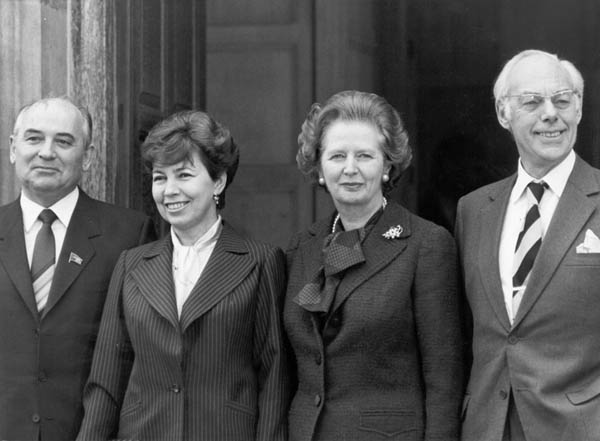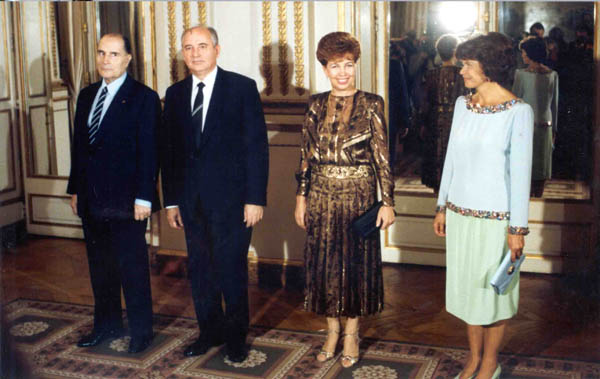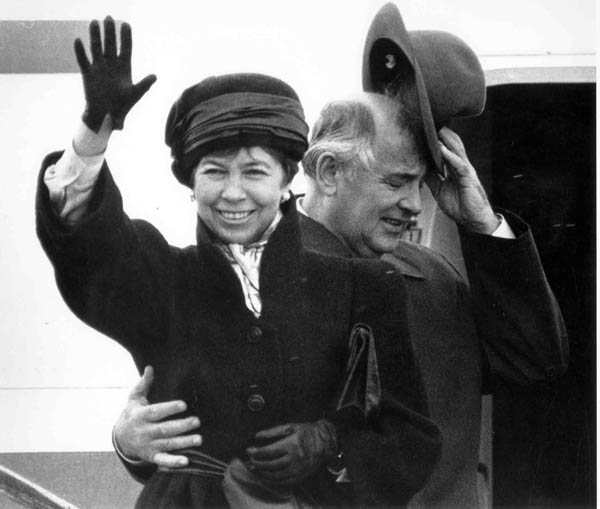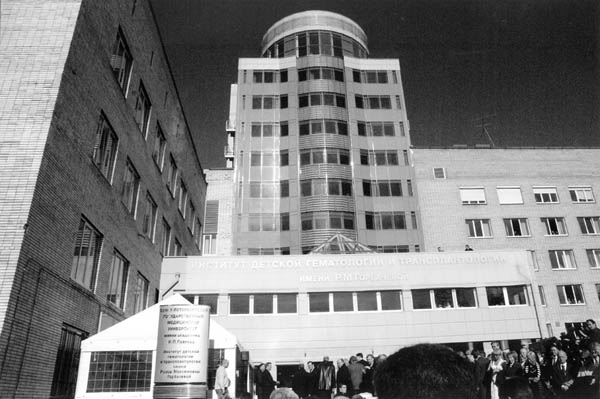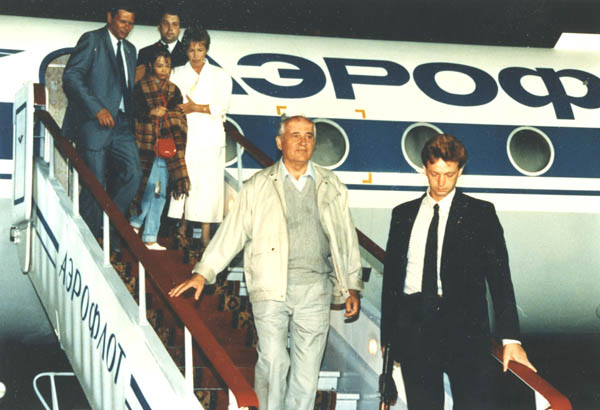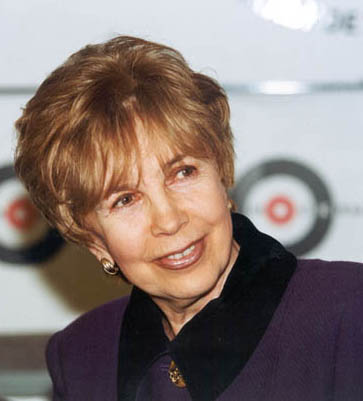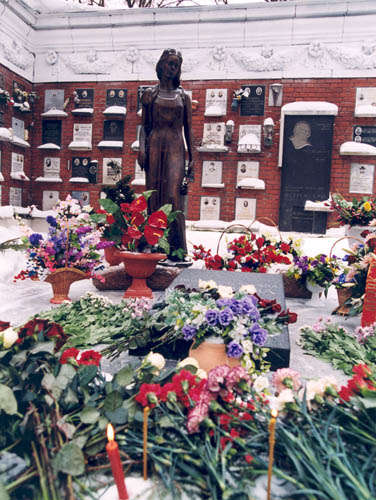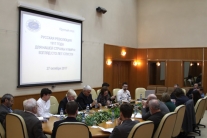Raisa Maksomovna Gorbachev was born in a West-Siberian (now the Altai Krai) town of Rubtsovsk on January 5th, 1932 into a family of railway construction engineer Maksim Andreevich Titarenko (1907- 1986) and Aleksandra Petrovna Parada.
Raisa Gorbachev’s father, a native of the Chernigov Oblast in the Ukraine, moved to the Altai Krai in 1929 to build railways, where he met his future wife. Aleksandra Parada’s parents – Pyotr Stepanovich Parada and his wife Anastasia Vasilyevna– were peasants in many generations. Like millions of peasant families in Russia, they suffered hardship of peasant life before the Bolshevik Revolution and during Stalin’s collectivization. In early 1930s, Pyotr Parada’s family was disposed of their property as kulaks (wealthy peasants); Pyotr was charged of Trotskyism and executed. Raisa’s grandmother, the wife of a ‘people’s enemy,’ died of sorrow and hunger; her four children were left to the mercy of fate.
As a railway construction engineer, Maxim Titarenko had to travel extensively around the country along with his family, moving from one place to another. It was only forty years later that he, with great difficulties, got a permanent home. Raisa changed many schools but always did very well in school – and in 1949 she left secondary school with a gold medal in Sterlitamak, Barshkiria. This award entitled her to enter any higher educational institution in the Soviet Union without entrance examination. Raisa Titarenko chose to enter the Philosophy Department of Moscow State University. Years later she would recall her student years: “We were happy. Happy with our youth and with our hopes for the future. Even just with being alive. That we were studying at the university. That was what we valued.”
As a university student, Raisa Titarenko received not only the fundamental knowledge, but also met new and bright people. Among her fellow-students were Merab Mamardashvili, a future renowned philosopher, and Yury Levada, who would later become a prominent Soviet sociologist. But the turning point in Raisa’s life was the acquaintance with Mikhail Gorbachev, a student of the law department of Moscow State University. On September 25, 1953 the couple got married and celebrated this student wedding in the university hostel at Stromynka Street.
After the graduation of Moscow University in 1955, Mikhail Gorbachev was sent to Stavropol as a lawyer.
In January 1957 Raisa Gorbachev gave birth to daughter Irina.
In the first four years of her residence in Stavropol Raisa Gorbachev could not find job in accordance with her diploma. She lectured at the Stavropol branch of the All-Russian “Znanie” ('knowledge' in Russian), taught at the Philosophy Department of Stavropol Medical Institute and Stavropol Agricultural Institute. She also did sociological research, which, as she would admit later, played an important role in her academic career. The findings of her sociological studies provided the basis for her thesis The Development of New Features in the Life of the Peasantry in the Collective Farms (based on the findings of sociological research conducted in the Stavropol Krai). She defended her dissertation in sociology in 1967 in the Lenin Moscow State Pedagogial Institute. "The sociological researches in which I took part for many years, recalled Raisa Gorbachev, availed me of meetings with people, gave me bright pictures and realities of life filled with such a tremendous psychological depth which I shall never forget. Hundreds of people whom I have questioned on a whole variety of subjects, their recollections, stories and opinions of current events, remain in my memory and are the part of my life. I know what their daily life is like and what their problems are. I have traveled hundreds of kilometers along country roads, in a passing car, on a motorcycle or a cart, and sometimes I just walked in my rubber boots... My “practical sociology” is sociology with a human face, with the faces and the lives that have become part of my destiny. It has deepened very sharply my conception of “real life” and my understanding of life and people. And it was in the course of such meetings with real people, and not from books or newspapers, not from plays or films, that I came to understand many of our misfortunes and the questionable nature of many undisputed assertions and established concepts”.
In Stavropol the Gorbachevs obtained a room in a communal apartment – an apartment shared by two or more families. They would get an official flat years later after the election of Mikhail Gorbachev as first secretary of the Stavropol Krai party committee. Asked about how she felt in the role of a highly-placed party leader’s wife, Raisa Gorbachev said: “The ‘temptation’with power meant for me primarily new and added alarms and worries connected with my husband’s work in addition to my regular professional and family cares. First came our joint concern, of course, for the affairs of the region. But our new situation changed our lives to a certain extent from another point of view: it improved the family’s financial position, provided better opportunities for medical treatment, and it extended our circle of contacts and acquaintances.”
Owing to the election of Mikhail Gorbachev as secretary of the Central Committee of the Soviet Union Communist Party, the Gorbachevs moved to Moscow. In Moscow Raisa Gorbachev continued her professional career as a lecturer at Moscow State University and All-Russian ‘Znanie’ Society.
With the election of Mikhail Gorbachev as the General Secretary of the Soviet Union Communist Party in April 1985, Raisa's life radically changed. As the wife of the head of state, she accompanied her husband in all his domestic and foreign trips – first time in the Soviet history appearing in public as “First Lady.” Raisa Gorbachev was the first to break the image of “shadow” wives of Soviet leaders. However, her public appearances beside her husband as the First Lady were considered controversially by ordinary people, who primarily paid attention to the apparel she wore in public. ‘There are people, I know, who are interested in the external side of my life, admitted Raisa Gorbachev in an interview. They even envy me - for the clothes I wear and my ‘apparel’ on formal occasions… But I value something quite different – my participation in the tremendous undertakings that have fallen to the lot of someone close to me – my husband.’
In foreign countries Raisa Gorbachev’s personality aroused great interest and admiration. In 1987 the British magazine Woman’s Own named Raisa Gorbachev Woman of the Year; the International Foundation “Together for Peace” awarded Raisa Gorbachev the Women For Peace prize; in 1991 she won the Lady of the Year award. In the eyes of the world community Raisa Gorbachev was always an associate of the Soviet President and “the envoy of peace.”
After 1985 Raisa Gorbachev dedicated herself to the public and charity activities. Along with Academician Dmitry Likhachev, Georgy Myasnikov and other prominent cultural figures, she established the Soviet (later renamed Russian) Cultural Foundation which she co-chaired. She saw its major mission in humanizing relations between people, developing cultural dialogue between the peoples of her country and other nations, and protection of what is known as the cultural layer of civilization. During her presidency of the Russian Cultural Foundation the Soviet Union received more than 50 thousand items of Russian emigre archives and periodical editions, priceless objects and works of arts that had been taken out of Russia after the Bolshevik Revolution.
From 1981 to 1991 the Soviet Cultural Foundation raised and contributed to the development of the national culture the funds amounting to one hundred million US dollars. Raisa Gorbacheva provided financial support to the Andrei Rublyov Museum of Ancient Russian Art, the Marina Tsvetaeva Museum, the Pushkin Museum of Personal Collections, Peterhof’s Benois Museum, the Roerich Museum and many other provincial museums and libraries.
Under Mikhail Gorbachev’s presidency, Raisa Gorbachev co-chaired the Aid for the Children of Chernobyl Fund, patronized the association Hematologists of the World – For the Children and Moscow’s Central Children’s Hospital.
In memory of Raisa Gorbachev, who committed herself to combating children’s lieukemia, Raisa Gorbacheva Memorial Institute of Children’s Hematology and Transplantation was set up in Saint Petersburg; its opening ceremony took place on September 20, 2007. Within one year only since its foundation the hospital saved over 500 children from the fatal illness.
The heaviest experience Raisa Gorbachev had to go through was the August 1991 coup attempt against Mikhail Gorbachev. Held under arrest along with her family in the President’s dacha in Foros - a resort townlet in the Crimea - Raisa took hard the treason of Gorbachev’s close associates and really feared for the lives of her immediate relatives. As a result of psychological stress, Raisa Gorbachev had a microinsult which seriously affected her health, causing darkening of vision and speech disturbances.
Following the resignation of Mikhail Gorbachev as President of the USSR in December 1991, Raisa Gorbachev took an active part in the establishment and work of the Gorbachev Foundation. She also did a great job verifying facts and figures for the books that Mikhail Gorbachev wrote after his resignation.
In March 1997 Raisa Gorbachev set up and led The Raisa Maksimovna Club. The Club, whose members are prominent cultural and academic persons, public figures and journalists, meant to promote participation of women in the country’s public life, discussion and development of plans to combat children’s homelessness, growing violence in society and families, gender inequality and other acute social problems. The Raisa Maksimovna Club, now chaired by Irina M. Virganskaya, daughter of Raisa and Mikhail Gorbachev, continues its activity by holding conferences, organizing charity events and providing support to practical social projects.
July 22, 1999 doctors of the Hematology Institute of the Russian Academy of Medical Sciences diagnosed Raisa Gorbachev with lieukemia. She underwent treatment in Munster University clinic, Germany, that was carried out by best European hematologists and oncologists. However, despite tremendous efforts to save her life, Raisa Gorbachev died on September 20, 1999 without gaining conscious.
The sudden illness and tragic death of Raisa Gorbachev shook the world and especially Russian people. While staying in the Muster hospital Raisa Gorbachev received thousands of letters and telegrams from around the world containing wishes of rapid recovery. Reading those letters, shortly before her death, Raisa said: “I had to get sick with such a fatal illness and die to make people understand me”.
Raisa Gorbacheva was buried at Novodevichye cemetery in Moscow. Thousands of people came to say the last farewell to her.
Looking back on her life journey with Mikhail Gorbachev, Raisa Gorbachev wrote in her autobiographic book I hope: "We have had everything in our life – joy and sorrow, tremendously hard work and colossal nervous strain, successes and failures, poverty, hunger and material well-being. He and I have gone through it all while still preserving the original basis of our relationship and our devotion to our ideas and ideals. I believe that strength of spirit, courage and firmness will help my husband today to withstand the unprecedented ordeals of the most difficult stage of our life. I hope.”
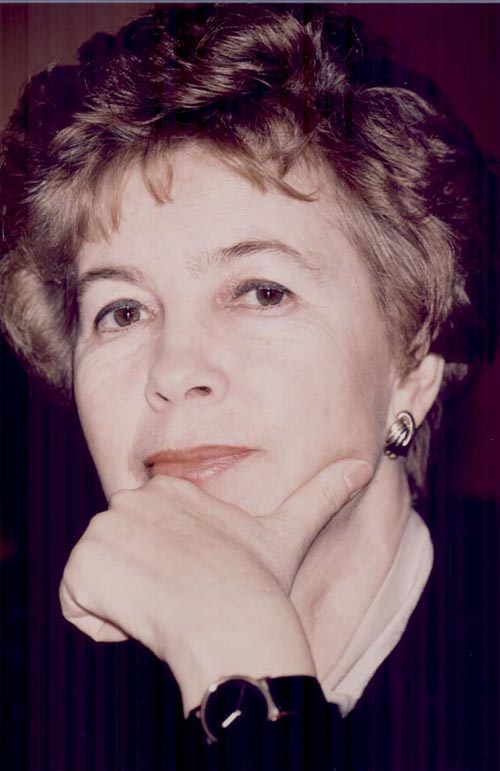
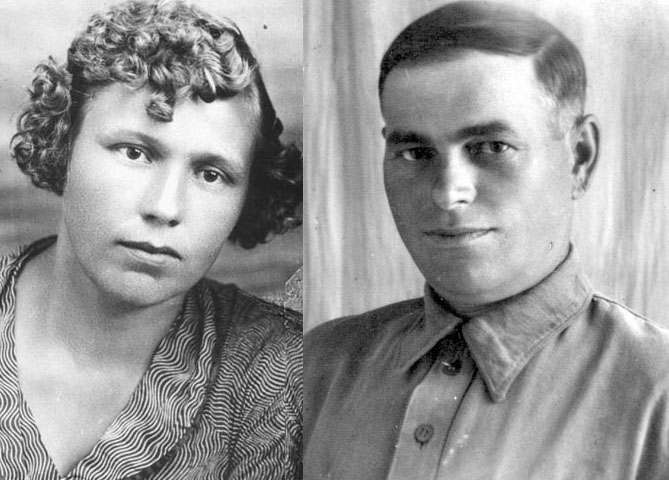
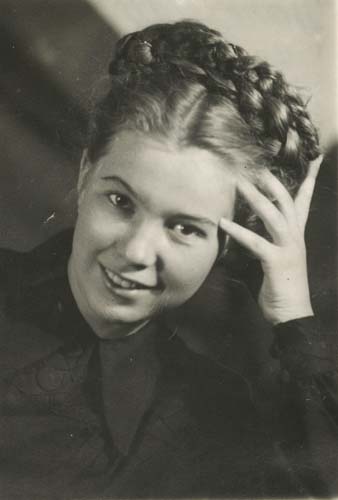
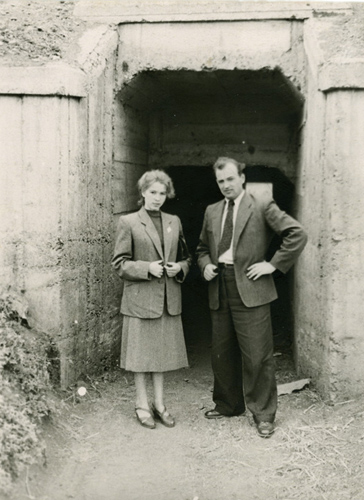
.jpg)
